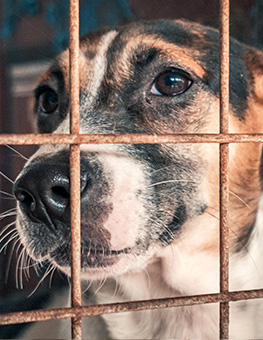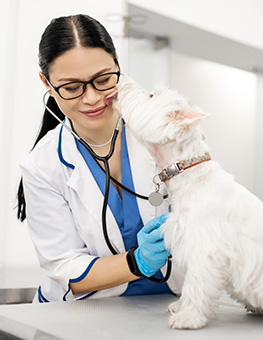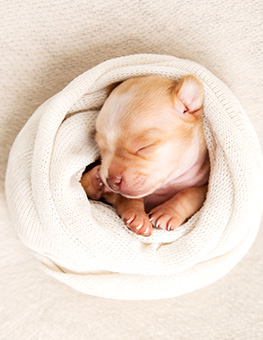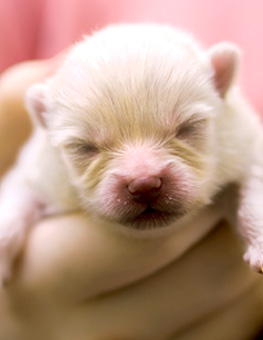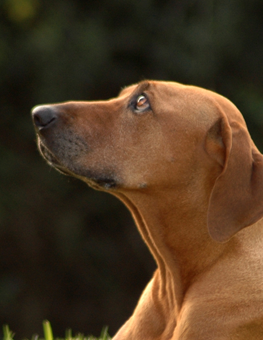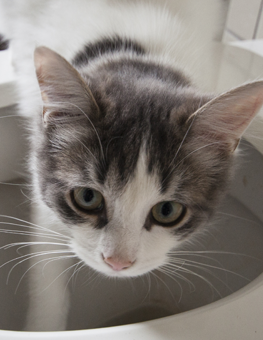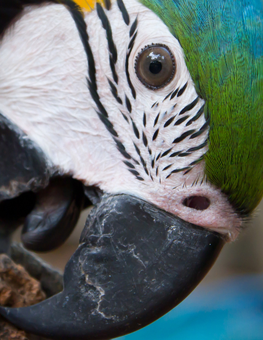Some Important Numbers for Good Dog Nutrition
Just like for humans, good dog nutrition means following strict guidelines. Make sure your furry friend is eating healthy dog food for the right amount of various nutrients.
Just like for humans, good dog nutrition means following strict guidelines. Make sure your furry friend is eating healthy dog food for the right amount of various nutrients.
For dog owners, the numbers usually signify something else: how many cups of food to give your pet, how many times a day. The number amount of various nutrients for dogs rarely figures into our minds.
Calories
An average sized dog (20 pounds) should be getting around 690 calories a day. This does not pertain to most dogs though, as size and activity level greatly changes this recommended intake. This also means that the ideal caloric intake for your dog may be difficult to calculate, as different factors influence it differently. This chart should help you determine the approximate range, however, of calories to give your dog:
| Dog Size | Calorie Intake for Normal Adult Dog | Calorie Intake for Late-Pregnancy Dogs, Young Puppies, or Working Dogs |
|---|---|---|
| 5-10 pounds | 210-330 calories | 390-620 calories |
| 11 -15 pounds | 330-440 calories | 620-820 calories |
| 15-30 pounds | 440-760 calories | 820-1430 calories |
| 30-60 pounds | 760- 1420 calories | 1430-2700 calories |
| 60-100 pounds | 1420- 2300 calories | 2700- 4300 calories |
While this chart is a handy guide, dog nutrition again isn’t so simple. Lactating females and heavy working dogs (sled dogs, for example), will need even more calories than listed here. Dogs that are trying to lose weight and older dogs will often need less. Talk to your veterinarian to specify an ideal number for your dog, based on breed, size, and physical status.
After doing this, you can work to determine the best way to feed your dog. Check the serving sizes and calorie content of your dog’s food. Then make sure to determine the calorie content of various dog treats you might be giving your dog. Keep these numbers in mind when you prepare your dog’s eating schedule. Also remember, though, that calories aren’t the only nutrient to monitor in your pet’s diet.
Protein
Dogs are, for the most part, carnivorous, and thus protein is an essential aspect of their diet. Proteins are structural building blocks for a healthy dog’s body, and a low protein diet is not an option for canines. (One exception is that dogs with kidney problems should not be eating high levels of protein). Adult dogs should be getting at least 18% protein in their diet, while puppies and pregnant dogs should be getting even more than this, around 28%. Dogs that perform a heavy activity, as well as sick or weak dogs, also need higher protein intakes.
Fats
Though fat is usually considered a bad thing in a daily diet, it is nevertheless an important part of good dog nutrition. Fat is a good source of energy and helps to keep a dog’s skin and coat healthy. Adult dogs should be getting at least 5% fat in their diet, and ideally between 9-15%. Puppies, pregnant and lactating dogs, and dogs with heavy workloads should get even more than this; at least 8% and ideally around 17%. Remember, though, that too much fat is still unhealthy for your dog.
Like you do, dogs need a regular, balanced diet to be healthy. Occasional dog treats are nice, and can often be beneficial, but make sure to monitor your dog’s intake of calories, fat, and protein, and give treats accordingly.



